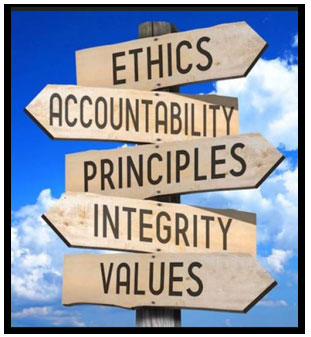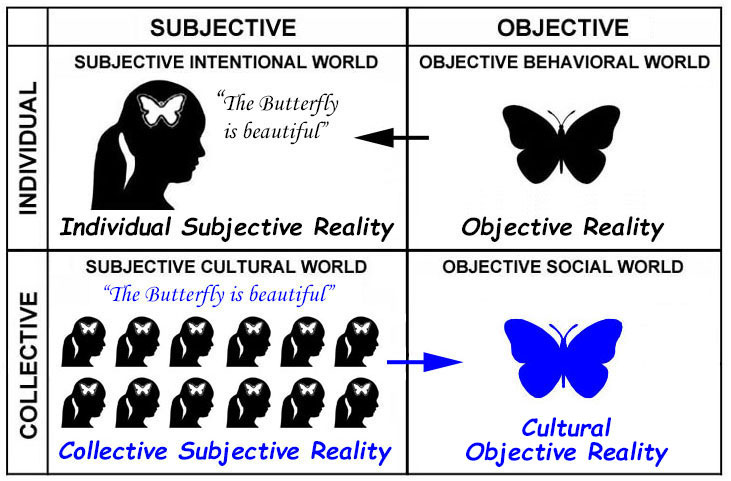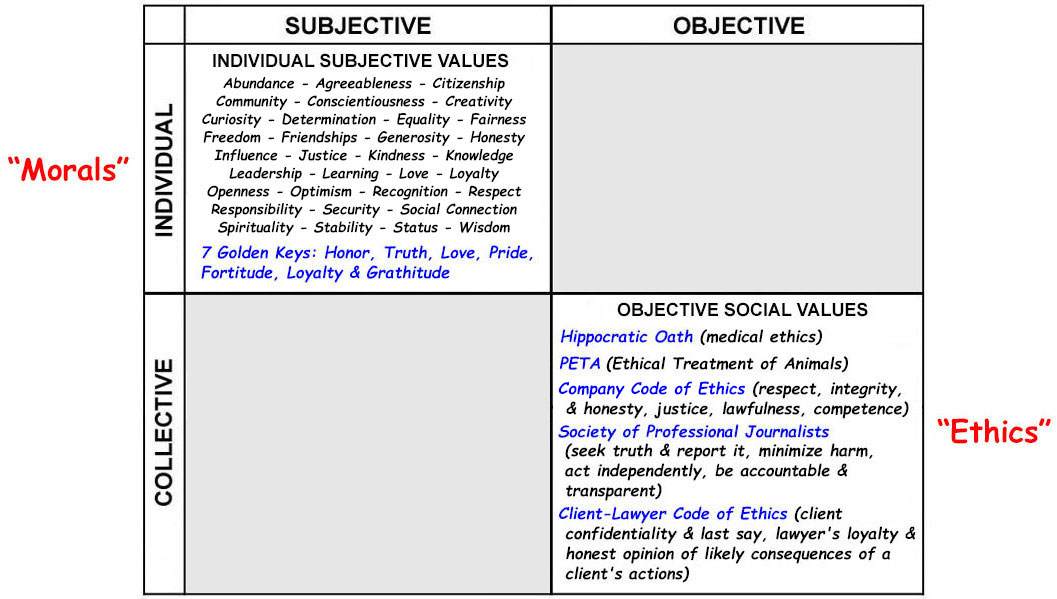Ethics & Morality

"Morality is
cowardice” – Friedrich Nietzsche
“When someone has been mean to you, why
would you want to be good to them? You wouldn't want to.
That's what makes it hard. You do it anyway. Being good is hard. Much harder than
being bad.”
― ‘The People of Sparks’,
Jeanne DuPrau
“You should be able to do things that
you wouldn't do. That's the definition of a genuinely moral person.”
― Dr. Jordan Peterson
“All I will take
with me to heaven is my white plume intact.” – 'Cyrano de Bergerac', Edmond Rostand
Origins
The word "ethic" comes from Old French (etique), Late Latin (ethica), and Greek
(ethos), all referring to customs or moral philosophies. The word "morals" comes from Late Latin (moralis)
which refers to appropriate behavior and manners in society. Originally, the two words have very similar, if
not synonymous, meanings.
Those who are considered morally good are said to be virtuous, holding themselves to high ethical
standards, while those viewed as morally bad are thought of as wicked, sinful, or even criminal. Morality was a
key concern of Aristotle, who first studied questions such as “What
is moral responsibility?” and “What does it take for a human being to be virtuous?
The perennial assumption among philosophers, and even common
folk, is that people are naturally disposed toward what’s ethical and virtuous (selfless. love, sympathy, kindness,
compassion). “The People of Spark” query (above) – “When someone has been mean to you, why would you want
to be good to them?” – reflects what we too often see and experience in life. The underlying, and even
spiritual, motive behind Jeanne DuPrau’s reply – “You do it anyway. Being good is
hard” – reveals the major purpose in life: to learn to be positive in a situation, in a world,
that is basically unloving, dark, deceptive and oppressive.
Ethics
Ethics refers to cultural rules, action or behaviors provided by an external
source. An ethical code is a set of rules that defines allowable actions or correct behavior. For example,
lawyers, policemen, and doctors all have to follow an ethical code laid down by their profession, regardless of
their own feelings or preferences. Some say ethics is secular. An ethical code does not have to be moral.
It’s a set of rules for people to follow. An ethical code has nothing to do with cosmic righteousness or a set of
beliefs.
Morals
Morals refer
individual values and beliefs provided by an internal source. Morals reflect the individual belief in
something being right (proper) or wrong (improper) or a faith of a universal standard that transcends cultural
norms.
As we shall explore in the following
AQAL discussion, moral ‘codes of conduct’,
whether it is influenced from a philosophy, religion, culture or society, begins in the individual subjective
space or reality and transforms, for good or bad, into a cultural objective
reality.
AQAL: Objective & Subjective
Realities
For an example let’s start with a butterfly. It’s a physical object so it’s
located in AQAL's Upper Right (UR) ‘quad’ (something you can ‘touch’).
The butterfly is an objective reality perceived by an
individual.

Imagine many people, regardless of race, religion, creed or
gender identity, find the butterfly especially beautiful. The butterfly is put on display in a museum and admired
by thousands of people who come to see the beautiful butterfly. The subjective reality of the "beautiful
butterfly", by agreement, starts to take on the characteristics of objective reality. The ‘subjective’
butterfly is now outside the mind!
AQAL:
Ethics & Morals Values Map
A value is something that outside influences can't change (a priority is something that
changes, due to outside influences and demands). Sample ethical and moral values are placed within the AQAL
matrix with morals in the UL quad of ‘individual subjective reality’ and ethics in the LR quad of ‘collective
objective reality’. In a sense the values of 'moral realism', who's
features are independent of subjective opinion, fall into the domain of 'Objective Social Values' or
'Ethics'.

Two Ethical Philosophies: Is
& Ought
In the beginning of “Ethics for Dummies” principal author Christopher Panza stresses
“In practice, most people use morals and ethics interchangeably, so in everyday conversation, you don’t really need
to distinguish between these terms. Insisting on their careful use could even come across as
pedantic.”
In a nutshell, ethics and morality concerns two philosophies:
IS & OUGHT
• What Is.
• What Ought to be good or right (and/or what should or shouldn’t be bad
or evil).
Examples:
Proposition: “Life is unfair.”
Reply1: “Life ought to be fair”
Reply2: “That shouldn't give you permission to do unfair
things”.
Proposition: “We are all
sinners.”
Reply1: “People ought to save themselves from ignorance.”
Reply2: “That shouldn't give you permission to sin”.
Ethical Theories
Robin Hood Dilemma
The Golden-Sliver Rule
Keeping a Sense of Humor
z
| 

